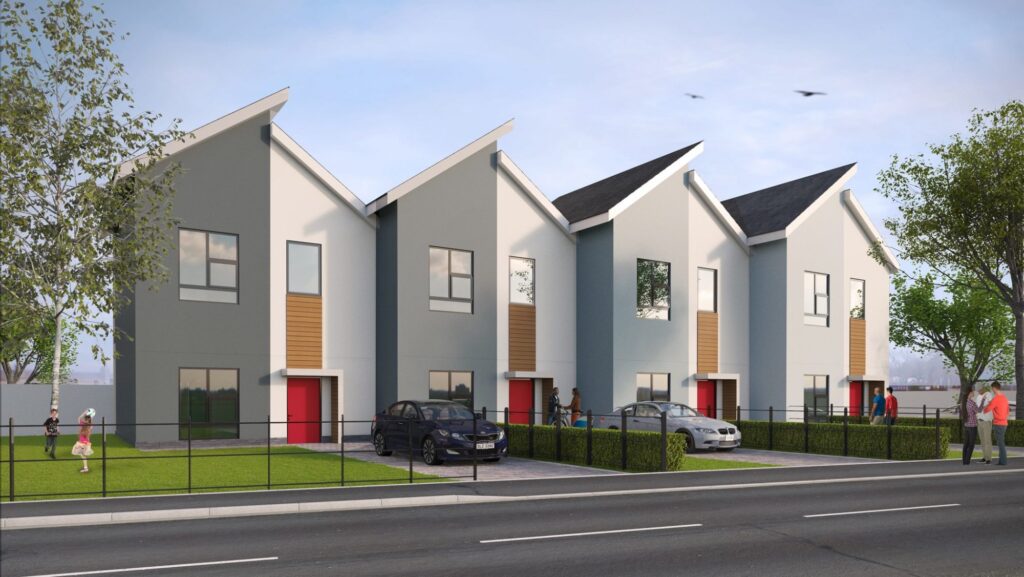Sustainable Housing Ecosystems (SHE), a joint venture involving Altair, AMC, and Trellis, will invest $50 million in Pakistan over the next three years to provide affordable housing to the country’s low- and middle-income residents.
On the eve of the First International Housing Expo, the CEO of AMC, Jawad Aslam, stated at a roundtable conference in Islamabad entitled “Resilient and Sustainable Housing for All: Delivering for People and Planet” that the Consortium has already invested $50 million and provided 3,000 housing units to the lower and middle-income classes.
The purpose of the event was to bring together major actors in the housing business to collaborate on the development of environmentally friendly projects throughout Pakistan. Participants noted that Pakistan has one of the lowest ratios of housing finance to GDP, at 0.25 percent, compared to 3 percent in Bangladesh, 11 percent in India, and 70 percent in the EU. They observed with concern that approximately 30 percent, or 65 million people in Pakistan, are experiencing a housing shortage and require approximately 10 million dwellings, signalling a tremendous investment opportunity.
Altair, a UK-based firm, delivers high-quality, innovative solutions to the diverse and dynamic housing difficulties faced by organisations, and they have provided over 50,000 homes in addition to enabling millions of additional homes for private and public ownership. AMC has constructed cheap and sustainable housing complexes in numerous Pakistani cities. Trellis Housing Finance Limited provides shariah-compliant housing finance to those who are not normally served by the country’s existing financial institutions.
Directors of Altair, Emma Ahmed & Ian McPherson OBE, the CEO of Trellis, Jamshed Meherhomji, and the CEO of AMC, Jawad Aslam, hosted the Chief Guest, Iftikhar Ali Shallwani, the Secretary of Ministry of Housing & Works, as well as other representatives from the Ministry of Housing & Works and Key Executives from IFC, Faysal Bank, Central Business District (CBD) Lahore, Ravi Urban Development
Widespread agreement existed among the attendees that Pakistan’s home-building initiative should prioritise the major benefits of energy-efficient and sustainable developments with least environmental impact and maximum affordability for the common man and woman. Participants highlighted the numerous prospects in the construction industry, including the utilisation of construction machines, construction supplies, and project management.
Emma Ahmed emphasised the need of sustainable development by adding, “Pakistan has the capacity to deliver sustainable housing on a large scale, as a successful proof of concept has already been implemented.” We must connect policy, legislation, and investment to facilitate a large scaling of the solution, which has the potential to transform life for future generations and protect against future economic and climate shocks.
Jawad Aslam shared the same view. He highlighted the need for affordability as a significant sector driver. He stated, “Government assistance is necessary to shorten the approval process and provide access to their database of pre-approved consumers wanting housing. This will boost the return on investment for such initiatives, making them more attractive to investors and developers alike, allowing them to be completed on a larger scale and have a greater impact.
The absence of financing in this industry has been a significant barrier to the development of new, sustainable housing projects. Jamshed Meherhomji noted that the private sector can participate by “Providing adequate investments and credit facilities on viable terms so that housing finance companies can deploy it and enable individuals to climb the property ladder and create generational wealth.”
Obviously, the initiative to construct sustainable housing with little environmental impact will also require government help. In this regard, the GOP has already taken a number of beneficial initiatives, including a focus on cutting red tape, lower interest rate financing for the housing sector, and tax breaks for renewable energy equipment and materials.
The attendees were generally positive about the future. The majority of respondents believe that the Government of Pakistan can lead the effort to address housing and related issues, with the assistance of qualified and motivated policy planners, experts, and knowledgeable private activists.
Secretary of Housing and Urban Development indicated that there is an urgent need to change mindsets and grow vertically rather than horizontally. As a result of the lucrative nature of the real estate industry, he added, many industrialists and people with foreign educations are entering it.
The Secretary also emphasised low- and middle-income home affordability programmes.
